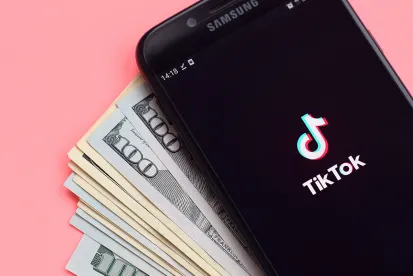The Takeaway: Severe restrictions on ByteDance’s Sale of TikTok should be a warning to media and tech companies with foreign ownership, particularly Chinese investment, to know your risks and mitigate them before the government comes knocking.
On August 14, 2020, the Trump Administration leveraged the U.S. Committee on Foreign Investment in the United States (CFIUS) to tighten the screws on TikTok, the wildly popular social media app, and its parent company, ByteDance. The Administration issued an Executive Order requiring ByteDance to divest all of its interest in the U.S. assets and data of TikTok within 90 days. The order also restricts to which parties ByteDance may sell or transfer those assets and gives CFIUS broad authority to review ByteDance and TikTok books, records, and IT systems.
That Executive Order follows an August 6 order (reported here) that empowered the Commerce Department to place restrictions on TikTok and ByteDance, as well as WeChat and its parent company, TenCent.
The Context
In November 2017, ByteDance bought Musical.ly for nearly $1 billion, then merged Musical.ly into TikTok nine months later, in August 2018. At the time of the Musical.ly acquisition, TikTok did not seek CFIUS review and clearance. That is likely because TikTok had not identified an evident link between homemade dance videos and U.S. national security, the basis for CFIUS reviews (national security, not dance videos).
Since that time, TikTok has become the most downloaded app in the United States. As that happened, the U.S. government raised concerns over data security and the spread of Chinese propaganda on TikTok. In response, on November 1, 2019, CFIUS launched an investigation, ab initio, into the ByteDance acquisition of Musical.ly. Normally, such investigations should be completed, and a transaction cleared or mitigation measures imposed within 90 days. However, this investigation stretched long past that deadline, keeping investors and social media users in suspense until this past week.
The Order
Last Friday, the White House published an Executive Order finding that the ByteDance acquisition of Musical.ly “threatens to impair the national security of the United States.”
-
Ownership by ByteDance of any interest in Musical.ly in the United States is prohibited.
-
ByteDance will have 90 days (with possible extensions) to divest all of its rights in the following:
→ Assets or property used to enable the operation of TikTok in the United States; and
→ Any data obtained or derived from TikTok or Musical.ly in the United States.
-
ByteDance will have 90 days (plus possible extensions) to certify to CFIUS that it has completely divested those interests.
-
Once divested, ByteDance must certify to CFIUS that it has destroyed all of the data and copies of the data mentioned above.
Further, the order prohibits ByteDance from selling or transferring the U.S. TikTok assets to any person unless or until:
-
ByteDance notifies CFIUS of the name of the buyer; and
-
CFIUS does not issue an objection within 10 business days (based on factors such as whether the buyer is a U.S. person, the buyer has any relationship to ByteDance, or the sale could impair U.S. national security).
Finally, the order places two of the most onerous conditions on the sale of TikTok by ByteDance, as follows:
-
Until ByteDance makes and certifies the sale or transfer, it must certify on a weekly basis that it is making its best efforts to divest, the nature of those efforts, and a timeline for divestment.
-
Until 90 days after ByteDance makes and certifies the sale or transfer, CFIUS or its designees will have the right to:
→ Inspect any ByteDance or TikTok books and records related to this matter;
→ Audit the IT systems of ByteDance or TikTok; and
→ Interview officers, employees, or agents of ByteDance or TikTok.
The Results
The measures appear targeted both to add pressure on the sale of the TikTok assets as well as to limit ByteDance’s room to maneuver in the transaction. Both of those goals are consistent with the President’s statement that the U.S. government is making the sale of TikTok to a U.S. company possible (as well as his comment that the U.S. government should therefore receive a share of the purchase price).
The investigation by CFIUS and the resulting Executive Order exemplify the continuing trend of the U.S. government cutting the ties between the U.S. tech world and Chinese investment and research. For U.S. media and technology companies, or any organization that tracks U.S. user data, the Executive Order is a lesson and a warning. The companies best placed to survive and thrive in the face of a widening rift between the U.S. and China will examine their ownership structure and their partnerships and work to mitigate the risks in both areas.







 />i
/>i
